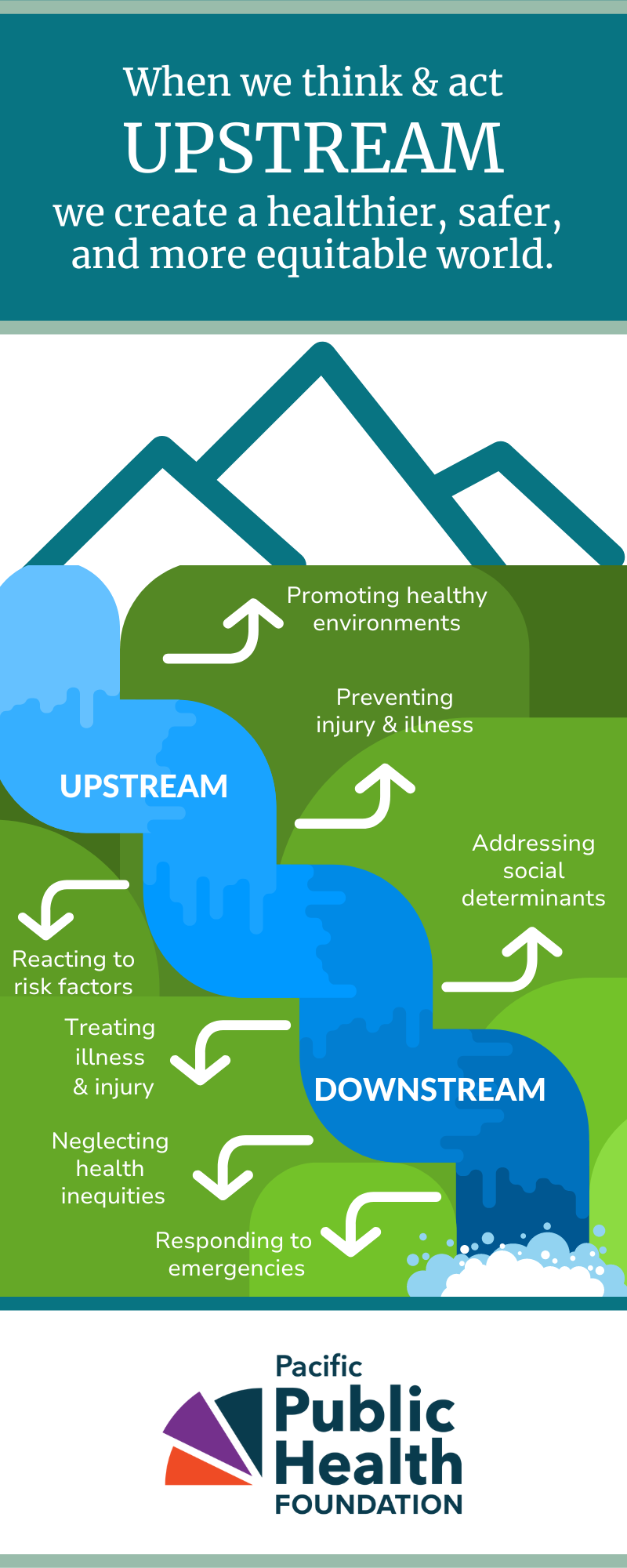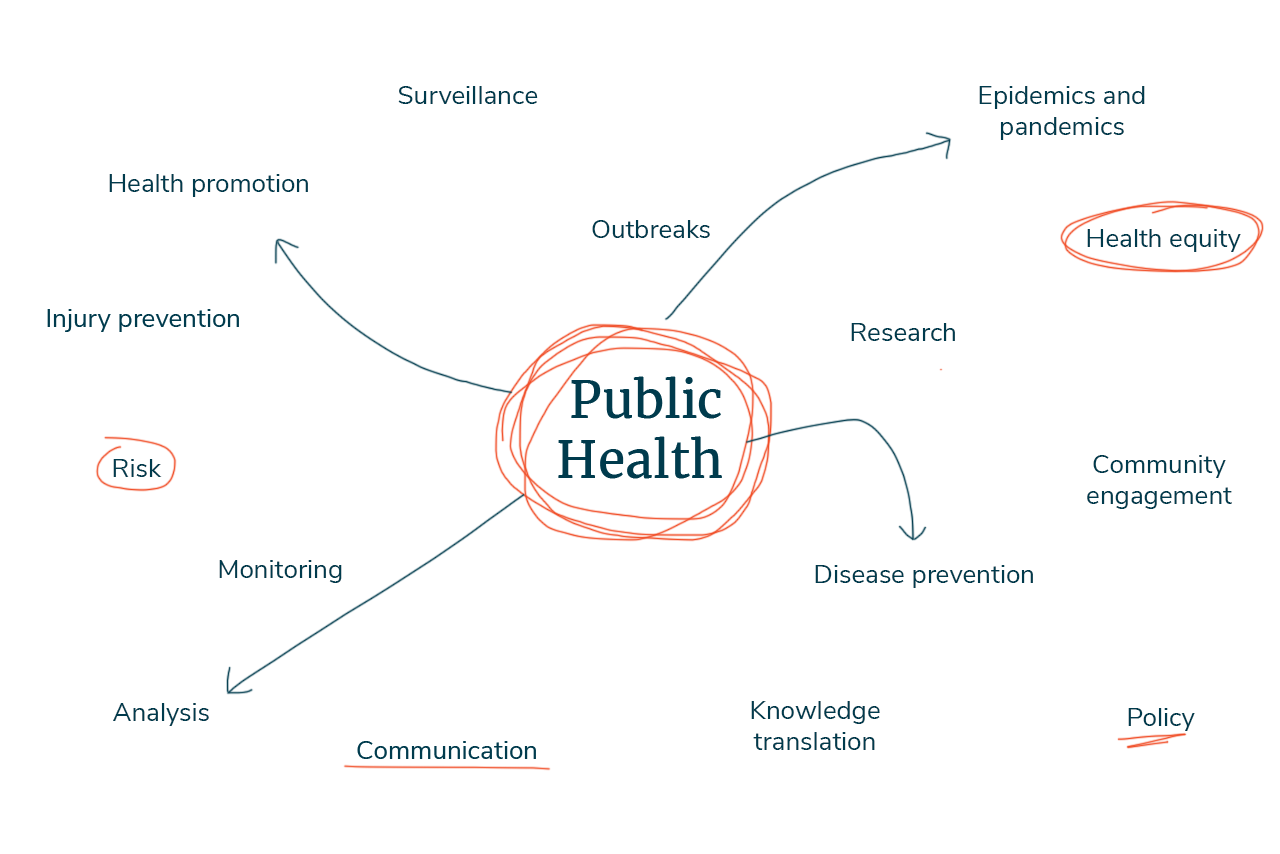Updated April 2024. Modified from original post in April 2023.
As we kick off a new fiscal year, and implement year two of our three-year strategic plan, we’re excited about the opportunities ahead. One of these opportunities is continuing to educate and raise awareness about public health, and why it is extremely relevant to you, your family, and your community.
Canadian Public Health Week was held earlier this month. This annual recognition, which was also declared for the first time in BC in 2023, provides the opportunity to showcase the work and to acknowledge all the professionals who get up every day, especially during difficult times, to put public health first.
Though raising awareness is embedded in our work every day, we use this area of our website to focus on and explain public and population health. One of the post series, which we call Decoding Public Health, is our space to raise awareness, educate, help break down concepts, simplify what can sometimes be a jargon-filled discipline, and get you excited about public health.
But, what is public health anyway? And why do we differentiate between public health and population health?
One simple way to answer that is just to say that public health is the ‘work’ and population health is the ‘outcome.’ In other words, population health is the level at which we hope to see impact from the functions or actions of public health.
Public health functions include health protection, promotion, and prevention; preparedness and response; and surveillance and monitoring. These functions contribute to the public health sector and are distinct from our publicly-funded healthcare system in Canada. However, though distinct, the two systems do work in synergy, with public health focused on groups, communities, and populations, while healthcare primarily focuses on individuals. Both are clearly vital to society, but unfortunately with most investment going to the latter, we must continue to demonstrate why public health matters.
When we talk about population health, we’re also including the social determinants of health (SDOH) because there will never be a healthy population if we don’t consider all factors that contribute to health. One of the most fundamental and critical concepts in public health is equity. The work of public health is to address and find solutions for inequities that create systemic barriers for many in achieving good population health outcomes. For example, did you know that one’s gender is a major influencer of one’s health? Or that social isolation is a significant barrier that can lead to poorer health? We try to remove or lower those barriers.
One vital discipline within public health is health promotion. While there are a number of different models, one tenet of health promotion is that our place in the world influences our health. From the level of our beliefs, to public policy, to the environments we experience throughout our life stages, health is multi-factorial, intersectional, and not always about choice. Good health lives in our physical, mental, social, ecological, cultural, and spiritual environment.
When we think about the work of public health, prevention is probably the most easily understood mechanism through which we achieve improved health. Though prevention is a component, upstream is more nuanced. When we work ‘upstream,’ we’re taking action at the root cause of an issue, before it becomes an issue. Early childhood development, income, and housing are examples, but there are many more key examples. We encourage you to think of some to raise in conversations with your friends and family.

Social justice is a philosophy that everyone deserves equal rights and opportunities and is a fundamental prerequisite for health. This is paramount to public health. Because public health is mental health. Harm reduction and advancing solutions towards ending the Toxic Drug Poisoning Crisis is public health. Public health is gender rights. Public health is anti-Indigenous racism, Truth, and Reconciliation. Public health is the climate crisis. And so on.
Public health matters more than ever, and it’s not just about pandemics. Many of our posted resources and Decoding Public Health series were written pre-pandemic, but their content remains true and stronger than ever as we transition into this new world that has been through immense turmoil. We must keep our focus on how critical it is for health overall and we cannot get lost in the noise that the pandemic seems to be leaving it’s in wake. We must understand the need for, and invest in, public health and we must work with our current leaders and experts, and train future generations to think differently about health.
While our Foundation works with our core partners across the health authorities and in government, we work for you, and for the health of everyone in BC. We strive for the healthy human and do that through partnerships and collaborations. Our three-year strategic plan includes an aspirational vision — a healthier, safer, and more equitable future for all. Our five fundamental guiding principles ensure we’re grounding all our work in what matters to us, and to you.

